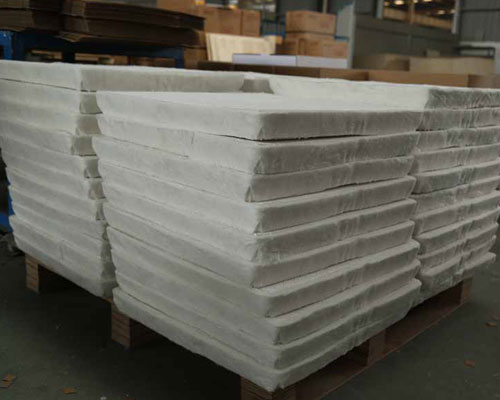AdTech improves alumina ceramic foam filter for molten aluminum filtration. It is an objective to provide a ceramic foam filter characterized by the cost of raw materials. Ceramic foam filters are produced by impregnating polyurethane foam with a ceramic slurry, drying, baking and finally firing the foam in the oven.
Metal casting components are found in 90 percent of manufactured goods and equipment, from critical components for aircraft and automotive industry to home applications. However, the molten metal used to produce metal casting in practice generally contains impurities and inclusions which are deleterious to the final cast metal product. Currently, the filtration technique by using a ceramic foam filter has been accepted as a successful method of reducing inclusions from molten metal during the casting of metal parts.
Experimental tests were carried out to the filters to measure dimensions, weight, cold compression strength, and permeability properties before the pouring process. After the pouring process, the filter was cut into several sections to measure the macro and microstructure of the filter and ensure that impurity particle captured by a filter. Thermal shock properties, obtained from pouring liquid aluminum when a ceramic foam filter was placed in the gating system to ensure that the filters could withstand temperatures of aluminum alloys.
Further experiments were carried out to investigate and determine the efficiency of produced ceramic foam filters on the quality of cast products. The result obtained in this investigation, the mechanical properties for aluminum alloy sand casting increased when a ceramic foam filter was inserted into the gating system. A produced filter by using new materials is economical to be produced.
Furthermore, the analysis data shows present innovation filter for molten aluminum filtration which can be made in any shape and size, has excellent thermal shock resistance, adequate compressive strength, acceptable density, and permeability properties.

